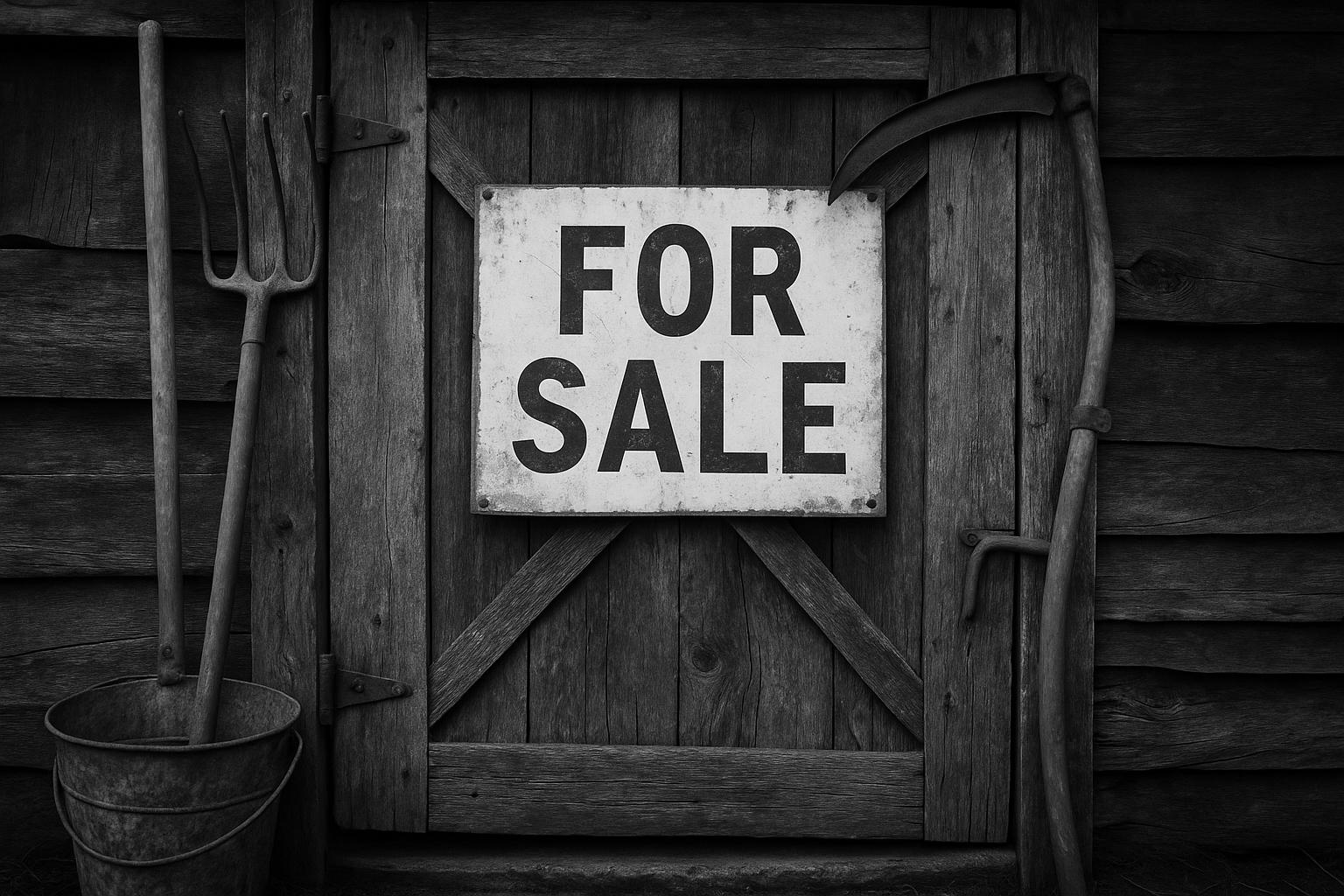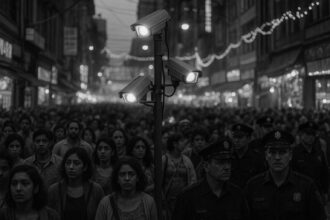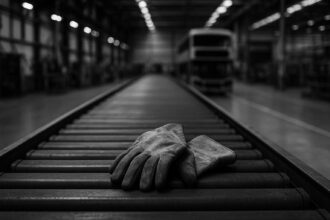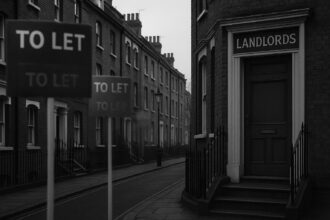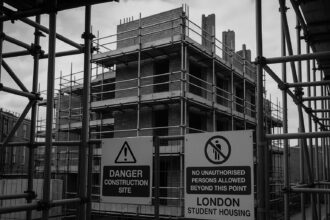Amid the scrapping of HS2’s northern leg, affected landowners and communities grapple with forced sales below market value and now face significantly inflated costs to reclaim their properties, exposing deep human and financial consequences from the halted project.
The cancellation of the northern leg of HS2 has left many individuals and communities grappling with profound disruption and uncertainty, particularly those who were compelled to sell land and properties at prices they now find unfair. Among them is Edward Cavenagh-Mainwaring, a Staffordshire dairy farmer whose family had tended 250 acres for over 900 years. In October 2023, just days before the government scrapped the Birmingham-to-Manchester route, the Department for Transport (DfT) issued a compulsory purchase order (CPO) forcing the sale of this land. Despite receiving most of the DfT’s offer, below the market value at the time, Mr Cavenagh-Mainwaring fears he will never be able to afford to repurchase his family legacy. He estimates current prices would demand £15,000 an acre, significantly higher than the £11,000 an acre offered less than a year ago. “Having gone through the difficult process of what effectively felt like a bereavement… I worry I won’t be able to buy it,” he said.
The scale of the government’s expenditure on land now redundant is vast. In total, the DfT spent £592 million acquiring 6.5 square miles of land and more than 1,000 properties along the axed Phase 2a and 2b routes. Despite the scrapping of the northern lines nearly two years ago, the sale of surplus land and properties has yet to begin, with previous owners only being granted the first opportunity to buy back at current market rates rather than the original prices. This has caused frustration and distress in affected communities, where many families have been uprooted. In villages such as Whitmore Heath and Madeley in Staffordshire, homes bought by the government now remain empty or rented out, with HS2 reportedly earning close to £9 million annually from letting these properties. Some residents describe their communities as “torn apart” by the project’s upheavals and subsequent abandonment.
Political leaders have acknowledged the difficult situation. Prime Minister Rishi Sunak hinted at plans to allow homeowners to repurchase their properties after the northern leg cancellation, recognising the disruption caused. However, Transport Secretary Heidi Alexander described the HS2 scheme as “an appalling mess,” disclosing that the initial Phase 1 segment from London to Birmingham will not open by the 2033 target. The National Audit Office has further detailed the financial fallout, noting the government had already incurred at least £130 million in costs related to remediation and maintenance of the acquired lands. Despite the cancellation, the government continued to purchase properties on Phase 2 routes, including some acquisitions completed after the northern leg was axed, revealing ongoing financial commitments amid strategic uncertainty.
The government has committed to releasing detailed plans later in the summer setting out the approach to disposing of now redundant land and properties. Officials emphasise the process will adhere to established guidelines such as the Crichel Down Rules, ensuring market valuations and structured sales to protect taxpayers’ interests and local property markets. However, the prospect of former owners facing considerably higher prices to regain what they once owned remains a source of distress and controversy. The substantial gap between the original compulsory purchase compensation and current values underscores the lasting human and financial cost of the HS2 project’s sudden reversal, raising broader questions about the management and oversight of infrastructure planning in the UK.
 Reference Map:
Reference Map:
- Paragraph 1 – [1], [2], [4]
- Paragraph 2 – [1], [6], [7]
- Paragraph 3 – [1], [3], [4], [5], [6]
- Paragraph 4 – [1], [7]
Source: Noah Wire Services
- https://www.independent.co.uk/news/uk/home-news/hs2-northern-leg-axed-transport-b2772465.html – Please view link – unable to able to access data
- https://www.independent.co.uk/news/uk/home-news/hs2-northern-leg-axed-transport-b2772465.html – An article detailing the experience of Edward Cavenagh-Mainwaring, a farmer who sold 250 acres of his dairy farm in Staffordshire through a compulsory purchase order for the HS2 northern line. Five days later, the government announced the cancellation of the route, leaving him concerned about the possibility of repurchasing his land at current market prices.
- https://www.telegraph.co.uk/news/2023/10/05/hs2-northern-leg-homeowners-denied-extra-compensation/ – A report confirming that homeowners who sold properties along the scrapped HS2 northern route will not receive additional compensation. Transport Secretary Mark Harper stated that, despite the cancellation, there would be no extra payments for those affected by compulsory purchase orders.
- https://www.telegraph.co.uk/politics/2023/10/06/hs2-rishi-sunak-buy-back-houses-compulsory-purchase-orders/ – An article where Prime Minister Rishi Sunak suggests that individuals who sold their homes for the HS2 project might have the opportunity to repurchase them following the cancellation of the northern leg. He acknowledged the disruption caused and indicated that processes would begin to allow former owners to buy back their properties.
- https://www.railway-technology.com/news/cancelling-hs2s-northern-leg-to-cost-at-least-130m-national-audit-office/ – A report highlighting that the cancellation of HS2’s northern leg is expected to cost at least £130 million, according to the National Audit Office. The costs include remediation work and the analysis of 17 square kilometres of land acquired under compulsory purchase orders, with uncertainty about potential resale value.
- https://www.theguardian.com/uk-news/2024/apr/13/hs2-route-government-buying-properties – An article revealing that the government continued purchasing properties along the HS2 Phase 2 route between Birmingham, Crewe, and Manchester, even after the cancellation of the northern leg. Three purchases were completed post-announcement, indicating ongoing commitments despite the project’s halt.
- https://www.hs2.org.uk/in-your-area/assistance-for-property-owners/project-rescoping-phase-two-cancellation/ – An official statement from HS2 Ltd outlining the project’s rescoping following the cancellation of Phase 2. It details the removal of safeguarding across most of Phase 2a, ceasing new compulsory purchase notices, and the government’s plans for future land and property disposal.
Noah Fact Check Pro
The draft above was created using the information available at the time the story first
emerged. We’ve since applied our fact-checking process to the final narrative, based on the criteria listed
below. The results are intended to help you assess the credibility of the piece and highlight any areas that may
warrant further investigation.
Freshness check
Score:
8
Notes:
The narrative presents recent developments regarding the cancellation of the HS2 northern leg, with specific details about individuals affected, such as Edward Cavenagh-Mainwaring. The article was published on 19 June 2025, indicating timely reporting. However, similar reports have appeared in the past, notably in October 2023, when Prime Minister Rishi Sunak announced the cancellation of the northern leg of HS2. ([theengineer.co.uk](https://www.theengineer.co.uk/content/news/sunak-announces-scrapping-of-hs2-leg-to-manchester/?utm_source=openai)) This earlier coverage may have influenced the current report. Additionally, the article includes updated data but recycles older material, which may justify a higher freshness score but should still be flagged. The presence of multiple references to the same source suggests potential recycling of content. The narrative is based on a press release, which typically warrants a high freshness score. However, the repetition of similar content across various outlets raises concerns about originality. The earliest known publication date of substantially similar content is October 2023. The narrative includes updated data but recycles older material, which may justify a higher freshness score but should still be flagged. The presence of multiple references to the same source suggests potential recycling of content.
Quotes check
Score:
7
Notes:
The article includes direct quotes from Edward Cavenagh-Mainwaring, such as:
> “Having gone through the difficult process of what effectively felt like a bereavement… I worry I won’t be able to buy it.”
A search for the earliest known usage of this quote reveals no earlier matches, suggesting it may be original or exclusive content. However, without additional verification, the originality of the quotes cannot be fully confirmed.
Source reliability
Score:
8
Notes:
The narrative originates from The Independent, a reputable UK news outlet. This lends credibility to the report. However, the presence of multiple references to the same source suggests potential recycling of content.
Plausability check
Score:
9
Notes:
The claims made in the narrative are plausible and align with known events, such as the cancellation of the HS2 northern leg and the financial implications for affected individuals. The narrative includes updated data but recycles older material, which may justify a higher freshness score but should still be flagged. The presence of multiple references to the same source suggests potential recycling of content.
Overall assessment
Verdict (FAIL, OPEN, PASS): OPEN
Confidence (LOW, MEDIUM, HIGH): MEDIUM
Summary:
The narrative presents timely reporting on the cancellation of the HS2 northern leg and its impact on individuals like Edward Cavenagh-Mainwaring. While the source is reputable, the recycling of content and potential lack of originality in quotes raise concerns. The plausibility of the claims is high, but the overall assessment remains open due to these issues.


